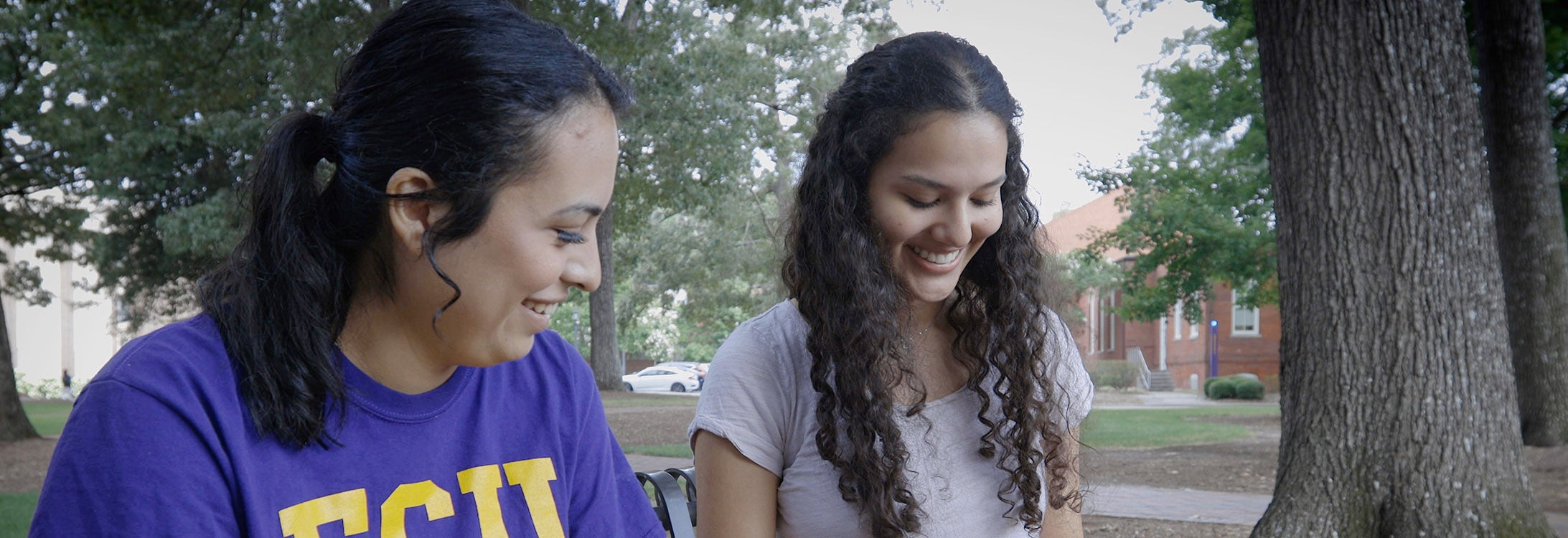¡BIENVENIDOS A ECU!
ECU is building a Hispanic community
East Carolina University has taken a step to better serve Hispanic students. There are more than 2,000 Hispanic students in ECU’s student body, which allows the university to be an associate member of the Hispanic Association of Colleges and Universities (HACU).
“(The associate membership) is important because it sends a message to the Latino and Hispanic population that they belong at ECU,” said Dr. Marjorie Campo Ringler, chair of ECU’s Department of Educational Leadership in the College of Education, who spearheaded the effort to obtain membership. “The education they (Hispanic/Latino students) are going to receive at ECU is going to be meaningful to them and it will prepare them to be leaders and to be professionals.”
“Becoming a member is just the beginning. I fully support the efforts of Dr. Ringler and the College of Education and look forward to collaborating with campus units like admissions, student success, and other colleges and schools, as well as organizations like the Comunidad Hispana/Latina grupo de recursos para empleados (Hispanic/Latino Community Employee Resource Group) to enhance our recruitment and retention of Hispanic students,” said ECU Associate Provost for Department for People Operations, Success, and Opportunity, Chief Diversity Officer and Title IX Coordinator LaKesha Alston Forbes.
“I also look forward to facilitating institutional connections and partnerships with other membership institutions whose missions are similar to ECU’s.”
HACU began in 1986 to help colleges and universities better serve Hispanic students. It has now grown to serve more than 500 college and university members today. Several Hispanic ECU students were active with the HACU membership proposal.
“I took part in this process because I want more Hispanic students to get the opportunity to receive a higher education,” said ECU public health major Marithza Mondragon. “I want them to know that there are people here to help and that attending college is possible.”
In 2009, Hispanic students made up only 2% of ECU’s student body. That number has been growing ever since — Hispanic students now make up 8% of ECU’s student body.
“As we endeavor to create an inclusive and welcoming campus where all students experience success, my hope is that our HACU membership will provide us with the best practices and partnerships to eliminate access and success barriers disproportionately impacting Hispanic students,” Forbes said. “Just as a rising tide lifts all boats, HACU will not only provide us with the information and practices to eliminate barriers for Hispanic students, but for other historically underrepresented, marginalized and minoritized students as well.”
In October, Ringler will take a group of ECU faculty and staff to San Diego, California, for the 36th annual HACU conference, where she hopes to forge partnerships to truly understand what it means to serve Hispanic students.
“We want to have Hispanic students look at ECU, feel like they belong and choose to come here for their education,” Ringler said.
This membership is already building excitement within ECU’s Hispanic/Latino community. Former EC Scholar Oswaldo Javier Rangel Corona is one of those students. He graduated with his bachelor’s degree in entrepreneurship in 2021 and is now earning his Master of Business Administration at ECU as a part of the class of 2023.
“The fact that I could be a part of the proposal, which could potentially increase the resources available to Hispanic students at ECU, brings me great joy,” Rangel said. “It allowed me to dissect my experience as a Hispanic student and suggest how that experience may be different for future Hispanic students.”
